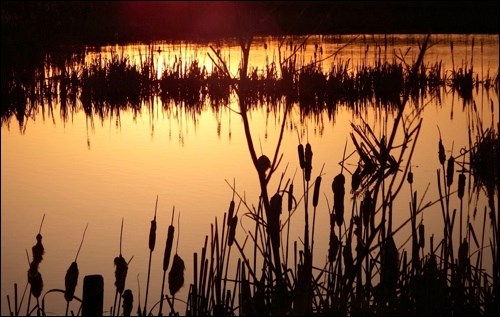Every one of us has lives other than the one we are living. From the bittersweet vantage of extreme old age, I look back to remember Robert Frost, the poet who touched my very soul, wrote about “the road not taken.” I think of a weary traveller at the fork of a road trying to choose where to go. One road leads to shelter, food, a warm bed and, perhaps, a comforting love. The other, perhaps, goes on forever into a sterile wilderness. What we are and where we are is because of where we chose to journey when we came to forks in our roads.
When I was a small boy, I lived in a low technology world. My home was in a frontier village, a mere pimple on the grassy skin of a vast plain. Caring parents knew their children must attend public school and Sunday school. Outside of each home, these were the only structured activities children knew. They were taught valuable lessons in both places and they took those lessons out into the magic world of childhood. My small friends and I also took from the school a ball (the only one) that had air in it. We didn’t know whether it was a basketball or a soccer ball. That didn’t matter because we didn’t know the rules of either sport. We made our own rules. When our obligations to the adult world were discharged, we played our own games in our own way. The exercise was strenuous and the pleasure was enormous. There were no instructors, no coaches, no leagues, no managers and no spectators. Our enjoyment was gained more from communal activity than from competition.
Because of what we had taken from our learning places, we were little boys of good deportment. We were not destructive and not hateful. The whole village was a playground and all the adults were our guardians. They only interfered with what we were doing when they saw us to be ignorant of impending danger.
I would hate to be a child now. Peer and parental pressure would force me into competitive sport, to take music lessons, dancing lessons and other lessons I haven’t heard of yet. A child needs time to be a child. Every child needs to draw from the wellsprings of a unique imagination.
When a face-to-face conversation with another human being (which is the best way to interact with others) is interrupted by someone on a cell phone, I am displeased. Unless the caller has an urgent message, I believe courtesy requires the caller be told he must wait until the face-to-face conversation is over. Far too many people would disagree with me.
I would not want to be a child today travelling for miles to some kind of organized competition. I would not want to be responding to a barrage of voice messages and text messages. Although I value the Internet, it is for children a dangerous external stimulus. There are dark pools of dishonesty and depravity there that can trap a child into talking the wrong road.
I look at the over-organized schedule of children today and wonder what it is all about. Is it to make them successful adults? Is it to protect them from evil? If so, there are no guarantees. Recognizing and resisting evil comes from inner knowledge and strength.
Little boys didn’t like little girls. As teenagers we came to a very great change. I remember the girls and I remember with kindness. Each one now seems to have been beautiful and charming. I realize, too, that, in a very real sense, each one of them was a road not taken.
Now, as a faithful church-goer and selective believer in the Christian scriptures, I understand that my church gave me an inoculation that made it possible to choose well in the roads which I travelled. The church is still there. The inoculations are still available, but in our hedonistic society, congregations are giving up and church doors are closing. For me, this is one of the terrible tragedies of our time.



